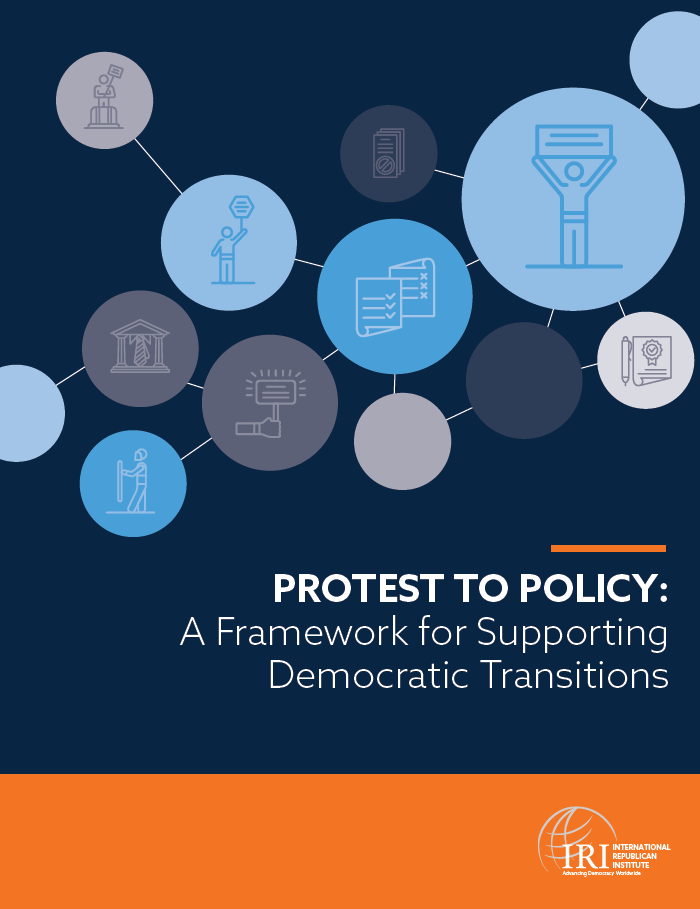Protest to Policy: A Framework for Supporting Democratic Transitions

Democracy activists and their international partners seek to increase democratic accountability by supporting the stakeholders who channel citizen interests into responsive policy. This goal has many challenges especially during protests or social movements, when popular expressions of frustration can lead to conflict, instability, or even violence. While a fixed formula or linear process to translate protests to policy goals is often desirable, it will rarely be viable. Social movements are intricate phenomena whose success depends on interactions of dozens of factors that vary across space and time.
To simplify this complex process and facilitate policy and program recommendations to help democracy activists, and their policymaker and democracy and governance practitioner partners, before, during, and after transitions, IRI developed the Protest to Policy: A Framework for Supporting Democratic Transitions report based on several decades of scholarly research on social movements. This analytical framework posits that movement outcomes depend on structural factors — including economic structure, technological change, social cleavages, and the international environment — that change independently and are not easily manipulated either by movement actors or through development assistance. These structural factors then shape movement-level factors — including organizational structures, political opportunities and threats, messaging and framing, and strategy and tactics — by constraining the options available to movement actors.
The Framework is intended for staff of funding agencies, implementing organizations, and their local partners in supporting reform and advocacy movements to achieve their policy goals. The Framework can help ensure that program expectations are sensitive to the local context and cognizant of the constraints facing local partners. Additionally, the Framework can be used by local partners to inform their own understanding of how the political landscape shapes options for outreach, messaging and framing, and strategy and tactics.
The research in this report is part of a growing compendium of case studies to support social and civic movements achieve success and tangible change in the form of democratic reforms, and is part of IRI’s global governance-focused programming.
Top